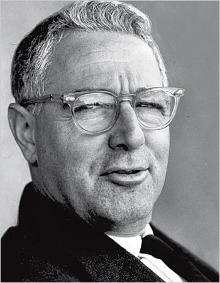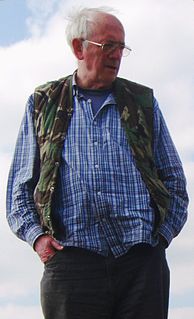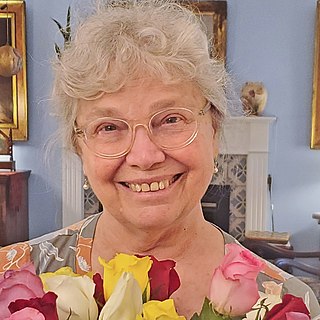A Quote by Jacques Maritain
Poetic experience is distinct in nature from mystical experience. Because poetry emanates from the free creativity of the spirit,it is from the very start oriented toward expression, and terminates in a word proffered, it wants to speak; whereas mystical because it emanates from the deepest longing of the spirit bent on knowing, tends of itself toward silence and internal fruition. Poetic experience is busy with the created world and the enigmatic and innumerable relations of existents with one another, not with the Principle of Being.
Related Quotes
By inner experience I understand that which one usually calls mystical experience: the states of ecstasy, of rapture, at least of meditated emotion. But I am thinking less of confessional experience, to which one has had to adhere up to now, that of an experience laid bare, free of ties, even of an origin, of any confession whatever. This is why I don't like the word mystical.
The characteristic property of hallucinogens, to suspend the boundaries between the experiencing self and the outer world in an ecstatic, emotional experience, makes it posible with their help, and after suitable internal and external perparation, to evoke a mystical experience according to plan, so to speak. I see the true importance of LSD in the possibility of providing material aid to meditation aimed at the mystical experience of a deeper, comprehensive reality. Such a use accords entirely with the essence and working character of LSD as a sacred drug.
Visionary experience is not the same as mystical experience. Mystical experience is beyond the realm of opposites. Visionary experience is still within that realm. Heaven entails hell, and 'going to heaven' is no more liberation than is the descent into horror. Heaven is merely a vantage point from which the divine Ground can be more clearly seen than on the level of ordinary individual experience.
The religions are the buildings or the institutions, the groups, but inside of that is what moves, is what's alive, is the beating heart of spirituality, and really, the heart's blood is the mystical experience. Not airy fairy vague mystical experience, but transformative, intimate experience that really touches your heart with love, and not just sex.
Science begins with the world we have to live in, accepting its data and trying to explain its laws. From there, it moves toward the imagination: it becomes a mental construct, a model of a possible way of interpreting experience. The further it goes in this direction, the more it tends to speak the language of mathematics, which is really one of the languages of the imagination, along with literature and music. Art, on the other hand, begins with the world we construct, not with the world we see. It starts with the imagination, and then works toward ordinary experience.
Sex is a doorway to something so powerful and mystical, but movies usually depict it in a completely flat way. Being explicit doesn't tap into the mystical aspect of it either in fact, that usually kills it because people don't want to see sex so much as they want to experience the emotions that go along with it. These things are hard to convey in film because sex is such a mystery.
I said before, the most beautiful and most profound religious emotion that we can experience is the sensation of the mystical. And this mysticality is the power of all true science. If there is any such concept as a God, it is a subtle spirit, not an image of a man that so many have fixed in their minds. In essence, my religion consists of a humble admiration for this illimitable superior spirit that reveals itself in the slight details that we are able to perceive with our frail and feeble minds.
If the ego is in the slightest way separated from its source, it yearns to find it again. This search comes from the remembrance of unity and plenitude. As every experience emanates from the non-experience which is our real being, the me also bears the scent of its source. This remembering is awakened through those moments of desirelessness and in deep sleep.
Physical pleasure is a sensual experience no different from pure seeing or the pure sensation with which a fine fruit fills the tongue; it is a great unending experience, which is given us, a knowing of the world, the fullness and the glory of all knowing. And not our acceptance of it is bad; the bad thing is that most people misuse and squander this experience and apply it as a stimulant at the tired spots of their lives and as distraction instead of a rallying toward exalted moments.









































